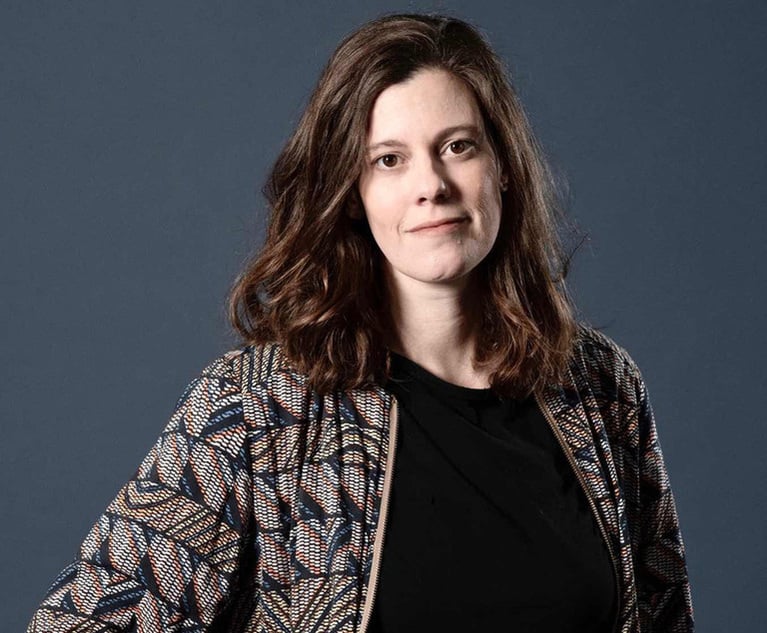 Credit: mrmohock/Adobe Stock.
Credit: mrmohock/Adobe Stock. Keeping Track of Developments in Cases That Pit Creative Content Against AI Programs
2024 starts off with court decisions and procedural rulings that took shape in 2023 in lawsuits that were filed over the collision of creative content with generative AI programs. Most of the complaints allege copyright infringement and related claims prompted by the unlicensed copyright works that AI companies input into their AI programs.
January 26, 2024 at 11:37 AM
8 minute read
What You Need to Know
- Artificial intelligence has dominated intellectual property news since the public introduction of OpenAI's ChatGPT in November 2022.
- Most of the lawsuits filed over the collision of creative content with generative AI allege copyright infringement prompted by the unlicensed copyright works that AI companies input into their programs.
- This article presents a scoreboard of notable case filings and court developments in some of the creative content/AI litigations.
Artificial intelligence has dominated intellectual property news since the public introduction of OpenAI's ChatGPT, the generative AI chatbot, in November 2022. Now, 2024 starts off with court decisions and procedural rulings that took shape in 2023 in lawsuits that were filed over the collision of creative content with generative AI programs. Most of the complaints allege copyright infringement and related claims prompted by the unlicensed copyright works that AI companies input into their AI programs.
There are many legal questions to answer, including: how the copyrightability of expressive content that includes elements created by AI will be determined; to what legal extent AI programs may be trained via unlicensed copyrighted works; and whether AI companies have a viable "transformative" fair-use defense to infringement claims as well as to what extent the U.S. Supreme Court's decision in Andy Warhol Foundation for the Visual Arts Inc. v. Goldsmith, 14 S.Ct. 1258 (2023) — which narrowed the transformative use defense — may impact AI companies.
This content has been archived. It is available through our partners, LexisNexis® and Bloomberg Law.
To view this content, please continue to their sites.
Not a Lexis Subscriber?
Subscribe Now
Not a Bloomberg Law Subscriber?
Subscribe Now
NOT FOR REPRINT
© 2025 ALM Global, LLC, All Rights Reserved. Request academic re-use from www.copyright.com. All other uses, submit a request to [email protected]. For more information visit Asset & Logo Licensing.
You Might Like
View All

Anthropic Agrees to 'Guardrails' for Its AI Training to Protect Copyrighted Lyrics Pending Fight Over Fair Use
5 minute read
After $4M Verdict, Federal Judge Denies Request for New Trial on Unsuccessful Trademark Claims

Counterfeiters Ride Surge in Tabletop Games’ Popularity, Challenging IP Owners to Keep Up
8 minute readTrending Stories
Who Got The Work
J. Brugh Lower of Gibbons has entered an appearance for industrial equipment supplier Devco Corporation in a pending trademark infringement lawsuit. The suit, accusing the defendant of selling knock-off Graco products, was filed Dec. 18 in New Jersey District Court by Rivkin Radler on behalf of Graco Inc. and Graco Minnesota. The case, assigned to U.S. District Judge Zahid N. Quraishi, is 3:24-cv-11294, Graco Inc. et al v. Devco Corporation.
Who Got The Work
Rebecca Maller-Stein and Kent A. Yalowitz of Arnold & Porter Kaye Scholer have entered their appearances for Hanaco Venture Capital and its executives, Lior Prosor and David Frankel, in a pending securities lawsuit. The action, filed on Dec. 24 in New York Southern District Court by Zell, Aron & Co. on behalf of Goldeneye Advisors, accuses the defendants of negligently and fraudulently managing the plaintiff's $1 million investment. The case, assigned to U.S. District Judge Vernon S. Broderick, is 1:24-cv-09918, Goldeneye Advisors, LLC v. Hanaco Venture Capital, Ltd. et al.
Who Got The Work
Attorneys from A&O Shearman has stepped in as defense counsel for Toronto-Dominion Bank and other defendants in a pending securities class action. The suit, filed Dec. 11 in New York Southern District Court by Bleichmar Fonti & Auld, accuses the defendants of concealing the bank's 'pervasive' deficiencies in regards to its compliance with the Bank Secrecy Act and the quality of its anti-money laundering controls. The case, assigned to U.S. District Judge Arun Subramanian, is 1:24-cv-09445, Gonzalez v. The Toronto-Dominion Bank et al.
Who Got The Work
Crown Castle International, a Pennsylvania company providing shared communications infrastructure, has turned to Luke D. Wolf of Gordon Rees Scully Mansukhani to fend off a pending breach-of-contract lawsuit. The court action, filed Nov. 25 in Michigan Eastern District Court by Hooper Hathaway PC on behalf of The Town Residences LLC, accuses Crown Castle of failing to transfer approximately $30,000 in utility payments from T-Mobile in breach of a roof-top lease and assignment agreement. The case, assigned to U.S. District Judge Susan K. Declercq, is 2:24-cv-13131, The Town Residences LLC v. T-Mobile US, Inc. et al.
Who Got The Work
Wilfred P. Coronato and Daniel M. Schwartz of McCarter & English have stepped in as defense counsel to Electrolux Home Products Inc. in a pending product liability lawsuit. The court action, filed Nov. 26 in New York Eastern District Court by Poulos Lopiccolo PC and Nagel Rice LLP on behalf of David Stern, alleges that the defendant's refrigerators’ drawers and shelving repeatedly break and fall apart within months after purchase. The case, assigned to U.S. District Judge Joan M. Azrack, is 2:24-cv-08204, Stern v. Electrolux Home Products, Inc.
Featured Firms
Law Offices of Gary Martin Hays & Associates, P.C.
(470) 294-1674
Law Offices of Mark E. Salomone
(857) 444-6468
Smith & Hassler
(713) 739-1250








